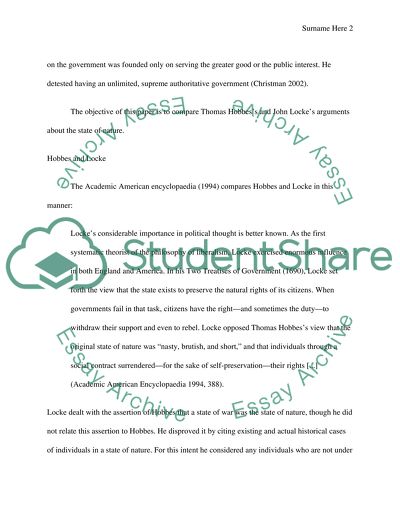Cite this document
(Hobbes' and Locke's Understanding of the State of Nature and of Natura Essay, n.d.)
Hobbes' and Locke's Understanding of the State of Nature and of Natura Essay. Retrieved from https://studentshare.org/philosophy/1561299-compare-hobbes-and-lockes-understanding-of-the-state-of-nature-and-of-natural-law-who-is-more-convincing
Hobbes' and Locke's Understanding of the State of Nature and of Natura Essay. Retrieved from https://studentshare.org/philosophy/1561299-compare-hobbes-and-lockes-understanding-of-the-state-of-nature-and-of-natural-law-who-is-more-convincing
(Hobbes' and Locke'S Understanding of the State of Nature and of Natura Essay)
Hobbes' and Locke'S Understanding of the State of Nature and of Natura Essay. https://studentshare.org/philosophy/1561299-compare-hobbes-and-lockes-understanding-of-the-state-of-nature-and-of-natural-law-who-is-more-convincing.
Hobbes' and Locke'S Understanding of the State of Nature and of Natura Essay. https://studentshare.org/philosophy/1561299-compare-hobbes-and-lockes-understanding-of-the-state-of-nature-and-of-natural-law-who-is-more-convincing.
“Hobbes' and Locke'S Understanding of the State of Nature and of Natura Essay”, n.d. https://studentshare.org/philosophy/1561299-compare-hobbes-and-lockes-understanding-of-the-state-of-nature-and-of-natural-law-who-is-more-convincing.


